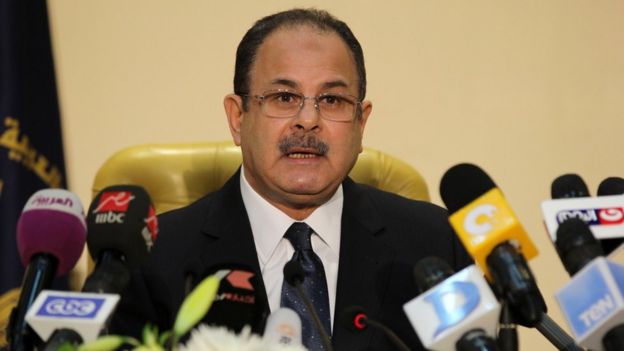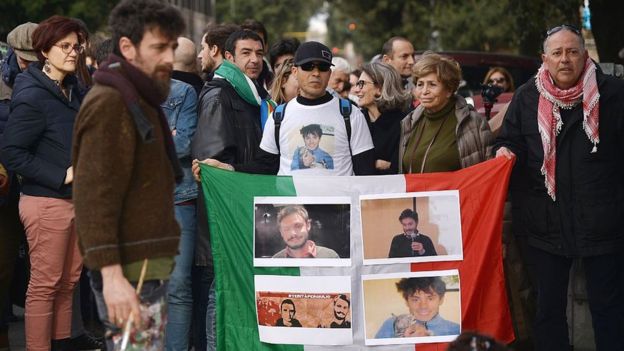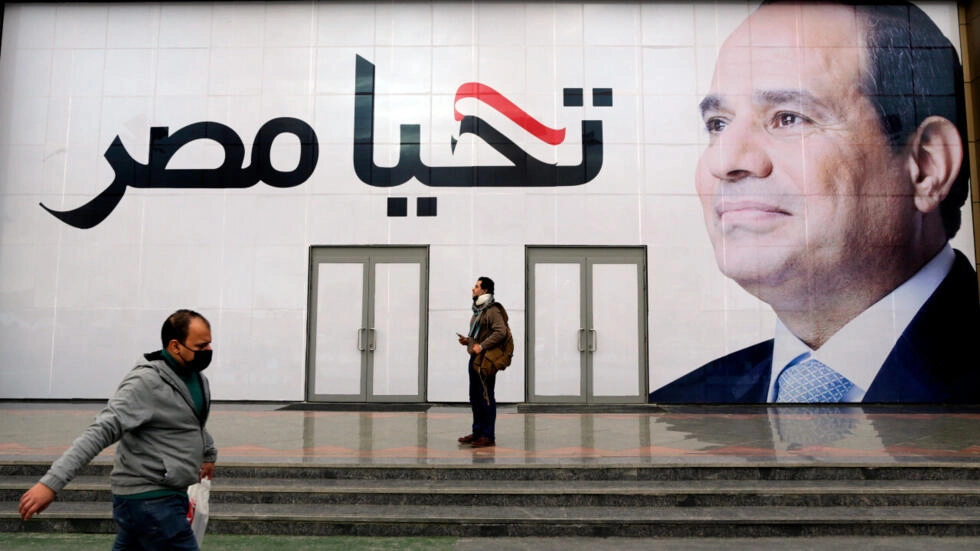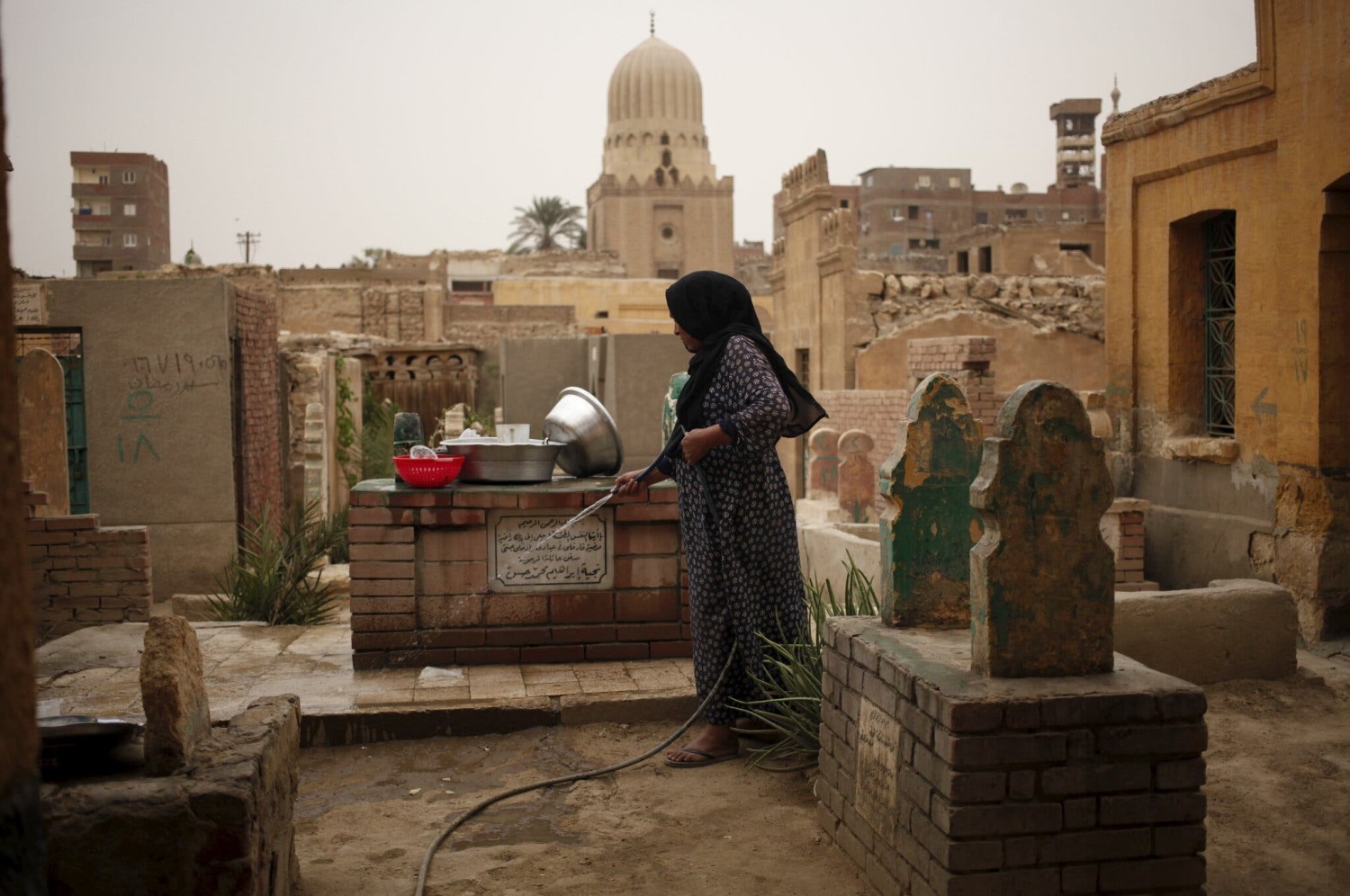This article is more than
8 year oldADVERTISEMENT Hundreds forcibly disappeared in Egypt crackdown, says Amnesty
Students, political activists and protesters - some as young as 14 - have vanished without a trace, according to a new report by Amnesty International.
Many are alleged to have been held for months and often kept blindfolded and handcuffed for the entire period.
Egypt's government has denied it uses enforced disappearances and torture.
Interior Minister Magdy Abdul Ghaffar has insisted the security services operate within a framework established by Egyptian law.
More than 1,000 people have been killed and 40,000 are believed to have been jailed since President Abdul Fattah al-Sisi led the military's overthrew of Mohammed Morsi, Egypt's first democratically-elected head of state, in 2013.
Prosecutors 'complicit'
Amnesty's Middle East and North Africa director, Philip Luther, said enforced disappearances had become a "key instrument of state policy" under Mr Sisi and Mr Abdul Ghaffar, who took office in March 2015.

Interior Minister Magdy Abdul Ghaffar says its forces operate within a framework of Egyptian law
Citing local non-governmental organisations, Amnesty said that on average three to four people per day had been seized, usually when heavily armed security forces led by the National Security Agency (NSA) stormed their homes.
Hundreds of people were thought to be held at the NSA's offices, inside the interior ministry's headquarters at Cairo's Lazoughly Square.
Mr Luther said the report exposed collusion between the security services and judicial authorities, who he alleged had been "prepared to lie to cover their tracks or failed to investigate torture allegations, making them complicit in serious human rights violations".
One of the cases in the report is that of 14-year-old Mazen Mohamed Abdallah, who was taken from his home in the Nasser City district of Cairo by NSA agents on 30 September and accused of being a member of the outlawed Muslim Brotherhood and participating in unauthorised protests.

Amnesty said it had found "clear similarities" between Giulio Regeni's injuries and those of Egyptians who had died in custody
Mazen said that after he denied the charges, interrogators repeatedly raped him with a wooden stick in order to force him to "memorise" a false confession, applied electric shocks to his genitals and other parts of his body, and threatened to arrest his parents if he retracted the confession.
The boy retracted the confession when questioned by a prosecutor, but was still charged and only released from custody on 31 January to await trial, Amnesty said.
Another of the cases featured in the report is that of Italian student Giulio Regeni.
The 28-year-old Cambridge University PhD student was found dead on a roadside on the outskirts of Cairo in February, his body bearing signs of torture.
The Egyptian authorities have denied any involvement in his killing, but Amnesty said its report had found "clear similarities" between his injuries and those of Egyptians who had died in custody.

Newer articles
<p> </p> <p>New Caledonia’s international airport is closed and Australians are advised to exercise a high degree of caution, as protests turn deadly.</p>
How the West's plan to punish Russian oil backfired
Vladimir Putin will meet his big brother in Beijing
France sends troops to overseas territory to quell unrest (VIDEOS)
King Charles III’s blood-red portrait is a stylistic mess
Buffer or ruse?: Russia's new offensive in northeast Ukraine 'not an open road to Kharkiv'
‘Keep your mouth shut’: J Lo’s big mistake
Diddy’s ‘Apology’ Is Only Happening Because He Got Caught
South Africa's top court rules ex-president Zuma ineligible to run in general election
Tom Brady says his appearance on ‘The Greatest Roast of All Time’ has ‘affected’ his children



